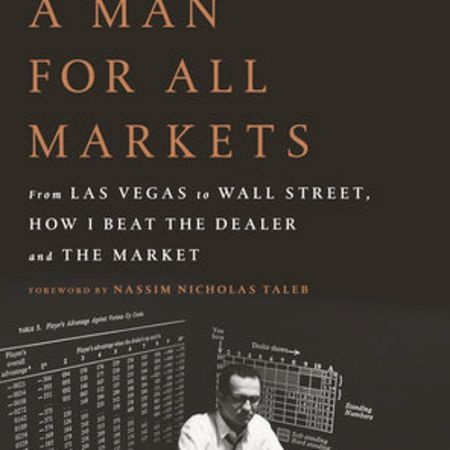A Man For All Markets

|
Edward Thorpe is one of those rare and special birds, like Richard Feynman, Warren Buffett, Benjamin Graham and I dare say, Nassim Nicholas Taleb whose singular intelligence, peculiar worldview, restless intellect and reluctance to take anything at face value converge with an innate compulsion to nut things out for themselves. These traits are rare enough when separate, but in those few in whom they converge achieve in one lifetime what ordinary genius would take several. Interestingly these four men knew and worked with each other at formative points in their careers.
From an early age Edward O Thorp was a mathematics prodigy, when a young tenured mathematics professor, in his spare time he devised a strategy to beat Las Vegas casinos at blackjack, and then, by observation, calculated the probabilities of deviance of a roulette wheel from true randomness. When the casinos out west wised to him and banned him from their premises, he moved to the big casino, out east, on the corner of Broad and Wall, NY. Intuiting that the efficient market hypothesis was flat out wrong, he beat Wall Street, too, by careful convertible arbitrage and, later, inventing the statistical arbitrage techniques that form the foundation for modern quantitative trading, and founding one of the first and most successful hedge funds.
Throughout it all, Thorp retained his conviction, patience, clear thinking and overall decency: like Warren Buffet, Thorp is a fundamentally decent
This is Thorp’s autobiography, made all the more colourful by his own narration. From his wanton childhood — he had a knack for hair raising public pranks, often involving explosives, the extraordinary encounters in mob-controlled Vegas, and then his account of the succession of crises of hubris that afflicted the markets from 1969, 1987, 1998 and 2008, this is a fascinating, educating, salutary tale.
They don’t make them like this any more.